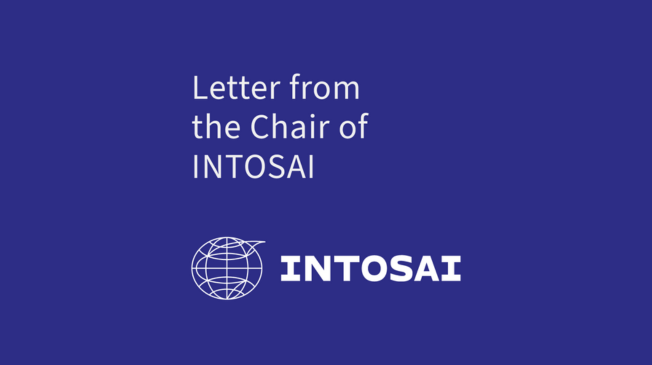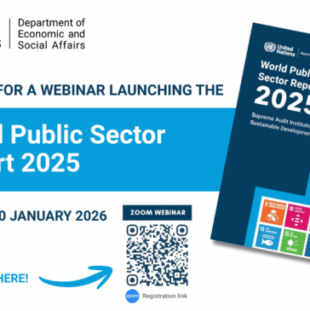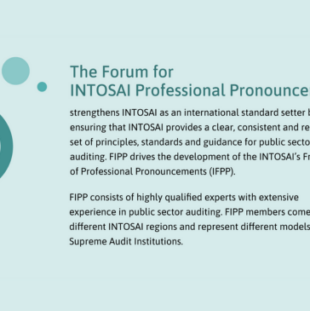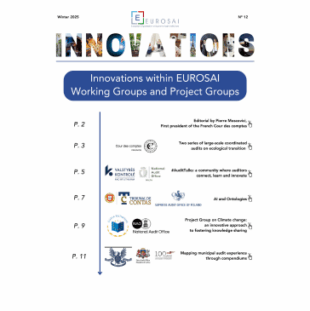Letter from the Chair of INTOSAI: Promoting Gender Equality: The Transformative Role of Supreme Audit Institutions

The Chair of the International Organization of Supreme Audit Institutions (INTOSAI), Minister Vital do Rêgo, highlights the transformative role of Supreme Audit Institutions in promoting gender equality.

Achieving gender equality is a moral, institutional, and democratic imperative that transcends national borders and calls for the dynamic participation of all sectors of public life. For Supreme Audit Institutions, this commitment holds even greater significance. Our credibility and effectiveness stem from our commitment to diversity, inclusion, and representation, as well as our dedication to addressing the structural inequalities that persist in our society.
In recent years, SAIs have made significant progress in incorporating a gender perspective into both their organizational structures and auditing practices. In Brazil, for example, the Federal Court of Accounts (TCU) has worked to integrate gender equity as a cross-cutting value in its activities, guided by data, assessments and concrete actions. Since 2024, the TCU has participated in the United Nations Development Programme (UNDP) Gender Equality Seal for Public Institutions, a global initiative that recognizes public institutions and governments committed to fostering inclusiveness and building societies where women and men have equal opportunities.
This participation has driven studies on women’s representation within the Court, focusing on key areas such as recruitment, career progression, remuneration, and leadership roles. While the findings reveal progress, they also highlight persistent and often invisible barriers that hinder the full advancement of women, particularly black women, into decision-making positions. In response, the TCU has strengthened its commitment to equity by expanding initiatives that address these challenges. These efforts include implementing regulations that establish gender proportionality guidelines for leadership roles, creating structures focused on equity such as the Audit Division for Equity and Human Rights Policies, and diversifying training programs to foster female leadership.
In the field of government auditing, the TCU has integrated a gender perspective in audits of public policies. A recent study of Sustainable Development Goal (ODS 5), Target 5.5, revealed that women’s representation in the highest positions of the federal administration remains unequal, despite their significant presence in the workforce. Analyses underscore the importance of overcoming institutional, cultural, and symbolic barriers to female leadership, and provide recommendations to strengthen public policies through a gender lens.
At the global level, the INTOSAI Development Initiative (IDI) has been running the Equal Futures Audit Changemakers (EFA) program since 2023, preparing professionals to lead audits with a focus on inclusion and equality. Using the AWAKE framework, the initiative combines professional training, mentorship, knowledge networks, and institutional support to develop audit strategies targeting marginalized groups such as women, persons with disabilities, and migrants. Active participation of SAIs in this program strengthens their capacity to act as agents of social transformation.
The webinar “Beijing+30: Review of Brazilian Public Policies for Gender Equality and Women’s Rights,” organized in partnership with UN Women and the UNDP, aimed to contribute to the discussions of the 69th session of the Commission on the Status of Women (CSW/69) and reaffirm the strategic role of SAIs in promoting gender equality and monitoring commitments made under the Beijing Declaration Platform for Action, which celebrates its 30th anniversary in 2025.
Among institutional strengthening efforts, programs promoting female leadership in the public sector stand out. ProInter: Women in Leadership, led by the TCU, brings together representatives of SAIs that are members of the Organization of Supreme Audit Institutions of the Community of Portuguese Speaking Countries (OISC-CPLP), the African Organisation of English-Speaking Supreme Audit Institutions (AFROSAI-E) and the Organization of Latin American and Caribbean Supreme Audit Institutions (OLACEFS) to discuss topics such as human rights and gender-responsive budgeting. Initiatives like this expand knowledge sharing, strengthen professional networks, and demonstrate SAIs’ commitment to valuing diversity in decision-making positions.
The OLACEFS Commission for Gender, Inclusion and Diversity (CGID) exemplifies the power of collective action in advancing equity across audit institutions in Latin America and the Caribbean. Through its leadership, the commission has driven the adoption of the Gender Equality and Non-Discrimination Policy by several SAIs in the region. This policy provides a comprehensive set of recommendations on human resource management, organizational culture, harassment prevention, and gender-responsive auditing. As a regional initiative, it offers valuable insights and inspiration for similar efforts worldwide.
Supreme Audit Institutions have a unique opportunity to drive progress toward gender equality, both within their organizations and in the broader public sphere. Internally, they can implement policies that promote equitable, safe, and inclusive work environments. Externally, they can refine audits and evaluations to ensure public policies are fair, effective, and attuned to the needs of all citizens.
The exchange of best practices, challenges, and lessons learned serves as a powerful tool for strengthening not only our institutions but also democracy and human rights on a global scale. INTOSAI remains steadfast in its commitment to fostering this dialogue, supporting the capacity building of its members, and embedding gender equality as a core strategic value in public oversight.
Advancing gender equality is a shared and strategic responsibility essential to the growth and effectiveness of SAIs. Collaborative efforts amplify our ability to transform institutional structures, enhance public policies, and create organizations that are more representative, impactful, and aligned with democratic principles. Together, we can pave the way for more inclusive institutions, equitable policies, and societies where equality is not merely an aspiration but a tangible reality for all.






